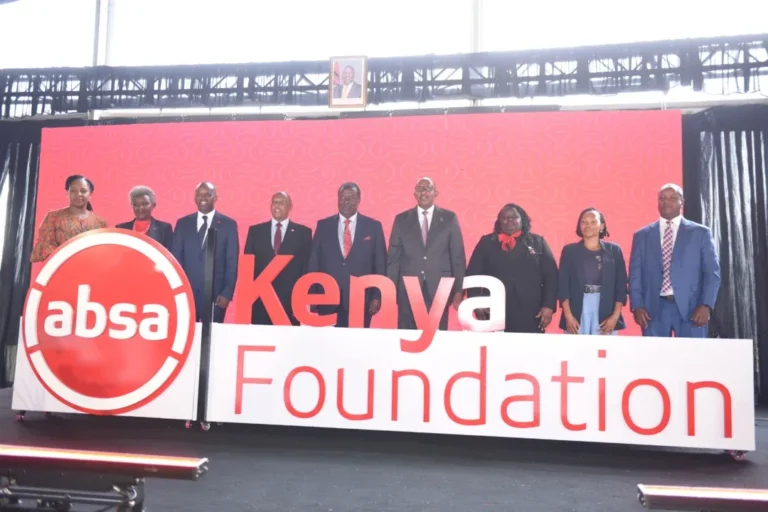Absa Bank has launched the Absa Kenya Foundation (AKF) as a social arm that will accelerate its positive impact and sustainability commitments within the community.
The Foundation, which will be sponsored by the Bank and its strategic partners, will focus on four key programmatic pillars: entrepreneurship, education and skills, natural resource management, and health and humanitarian relief.
Absa Bank Kenya will contribute 1.5% of its annual earnings to the new Foundation, starting off with KES500 million as seed funding towards transformative projects that will be implemented through strategic partnerships to address major societal and environmental issues.
Absa Bank Kenya PLC Managing Director, Abdi Mohamed, said, “The establishment of this Foundation is yet another step forward in our journey to lead and innovate within the financial sector, acting as a catalyst for positive, lasting change. This presents us with an important opportunity to build upon our past experiences to strengthen our ability to create lasting shared value and scalable impact for our communities in a sustainable manner.”
The Foundation’s Entrepreneurship pillar aims to empower 50,000 MSMEs over the next five years, with an emphasis on inclusivity: 60% women, 30% men, 10% youth, and 5% dedicated to Persons Living with Disabilities (PLWDs). Additionally, 10% of efforts will be directed on generating growth in the agriculture sector.
The Education and Skills pillar, on the other hand, aims to reach 1 million youth through the Ready-to-Work initiative, support 50,000 youth through the Absa Fellowship Program, and award 500 Science, Technology, Engineering, and Mathematics (STEM) scholarships, with a focus on providing students with future-ready skills.
The Foundation plans to expand climate financing contributions under the Natural Resource Management pillar to address climate change concerns through programs such as climate-smart agriculture, renewable energy, tree planting, and tree growing. The Foundation will advocate for low-carbon, climate-resilient development in collaboration with youth, SMEs, and other stakeholders, with the commitment to plant 10 million trees acting as a cornerstone.
Under the Health and Humanitarian Relief pillar, the Foundation will work with development partners and healthcare professionals to address major health issues and promote preventative care. This pillar will also prioritize responding to humanitarian crises such as floods and famine.
Mr. Mohamed said the Foundation’s success will be underscored by different critical partnerships that will support the co-creation, co-funding and co-implementing impactful programme in the community.
“We recognize that this is a journey we cannot undertake alone. We require robust partnerships, collaborations, and cooperation with like-minded stakeholders, which will form a solid foundation for the success of this endeavour,” he added.

